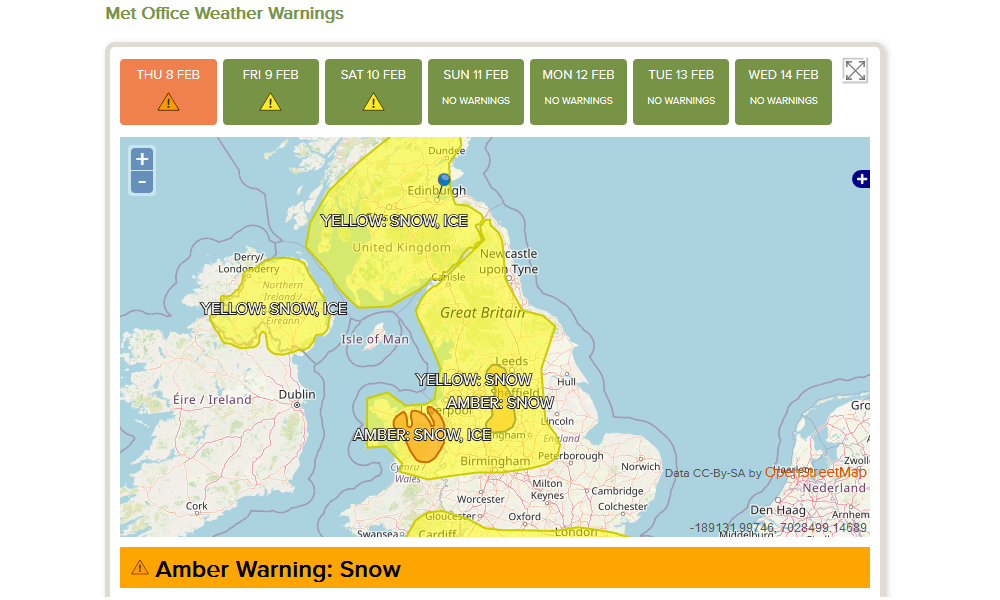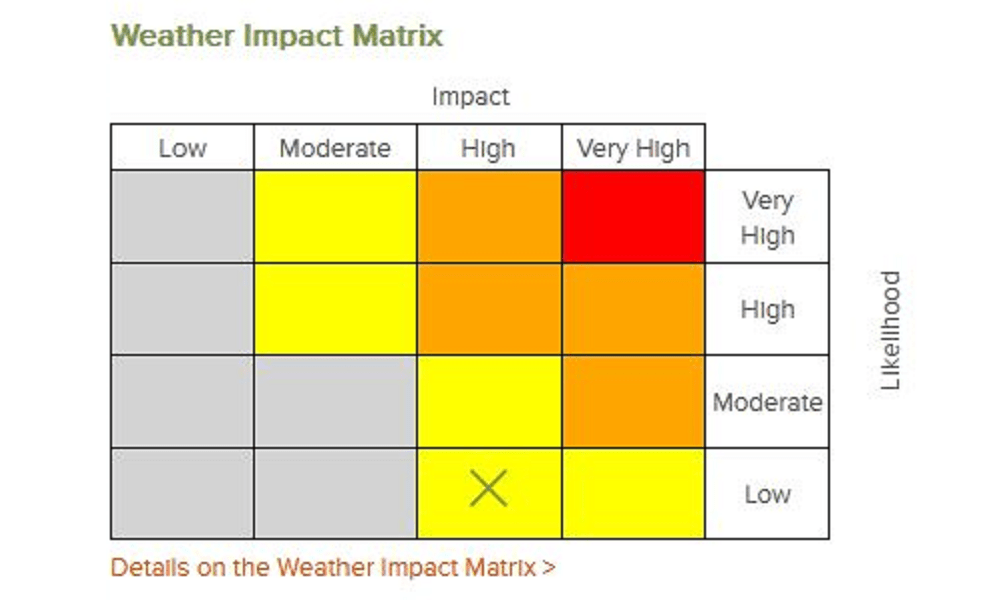Severe Weather Warnings – new Trackplot service
Launch of new Severe Weather Warnings service to complement the existing real-time Environmental maps on the Trackplot Portal. Provides advance notice of forthcoming severe weather allowing lone workers and managers to plan work ahead and review or cancel schedules which may put lives at risk.

Trackplot is excited to announce the launch of our new Severe Weather Warnings service. We have collaborated with the Met Office to provide our customers with weather warnings forecast up to 7 days ahead of the expected severe weather.
Customers can view weather warnings 24/7 by logging into their Trackplot Portal. Weather warnings are issued to warn of severe or hazardous weather, which have the potential to cause disruption, damage to infrastructure or a danger to life.
Weather warnings are issued for eight different weather types: Rain, Thunderstorm, Wind, Snow, Lightning, Ice, Extreme Heat and Fog.
Our new Severe Weather Warnings service is designed to allow customers to plan and prepare for the event of severe weather impacts and make informed decisions to mitigate the forecast impacts.
READ MET OFFICE INSIGHTS ARTICLE: Met Office data helps Trackplot to keep outdoor lone workers safe
What is a severe weather impact?
Based on the impact of the weather rather than a threshold of the weather itself, all weather warnings are given a colour: Yellow, Amber or Red. The colour depends on a combination of both the impact the weather will have and the likelihood of those impacts occurring.

Why are weather warnings important?
Lone workers are exposed to greater risks as they do not have direct supervision or anyone to help them if things go wrong.
Outdoor land-based lone workers are particularly vulnerable. Operating in remote, hazardous or tough environments, outdoor lone workers are exposed to all weather conditions including extreme weather which may jeopardise their safety.
Find out more about Trackplot’s Severe Weather Warnings
This new service provides our customers with consistent and robust severe weather messaging when it matters most.
Use the data to:
-
Plan work ahead
-
Review or cancel schedules which may put lives or property at risk
-
Anticipate the type of accident that may have occurred in the event of an “Overdue”, “Assistance Required” or “SOS” incident
-
Assess lone worker vulnerability
-
Inform how you implement your Escalation Procedures

Powered by Met Office data
